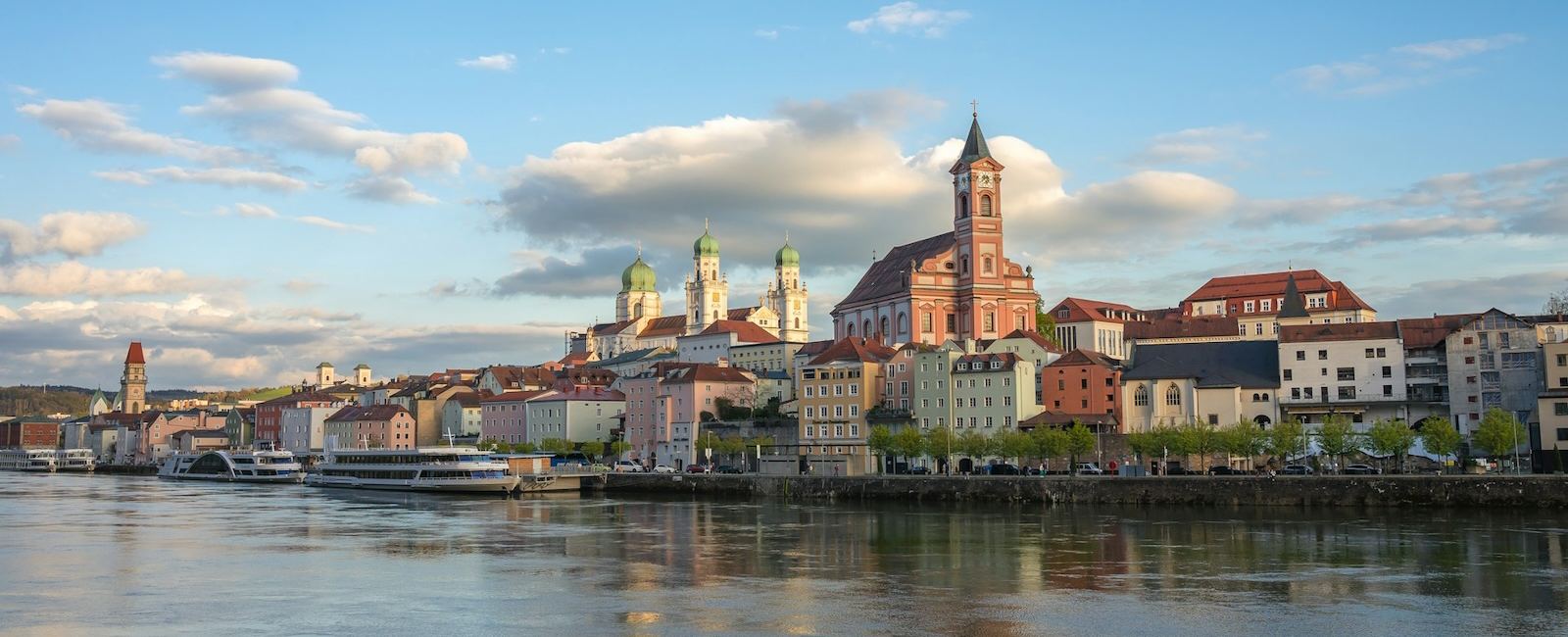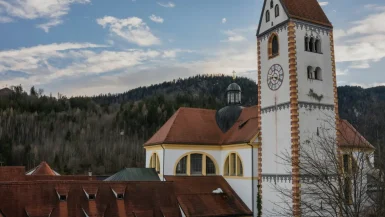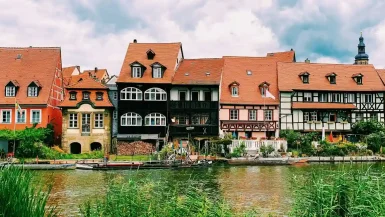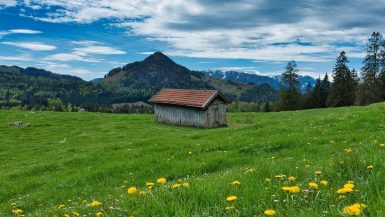Nestled at the confluence of three rivers—the Danube, the Inn, and the Ilz—Passau, a charming city in Lower Bavaria, offers a delightful blend of history, culture, and natural beauty. Often referred to as the “City of Three Rivers,” Passau’s unique geographical setting provides a picturesque backdrop for its rich architectural heritage and vibrant cultural life. Whether you’re a history buff, an architecture enthusiast, or simply a traveler looking for a unique destination, Passau has something to offer everyone. In this comprehensive guide, we’ll take you through the best of what Passau has to offer, from its historical landmarks and cultural attractions to its scenic views and culinary delights.
A Brief History of Passau in Bavaria
Passau’s history dates back to the Roman era, when it was known as Batavis. The city’s strategic location at the confluence of three rivers made it an important center for trade and commerce. In the early Middle Ages, Passau became the seat of the bishopric, and its influence grew as a religious and cultural center. The city’s architecture reflects its rich history, with a mix of Gothic, Baroque, and Rococo styles that tell the story of its development over the centuries.
Exploring the Old Town of Passau in Bavaria
The heart of Passau is its beautifully preserved Old Town, a maze of narrow streets and alleyways lined with historic buildings. Start your exploration at the St. Stephen’s Cathedral (Dom St. Stephan), a masterpiece of Baroque architecture that houses the world’s largest cathedral organ. The cathedral’s interior is adorned with stunning frescoes and intricate stucco work, making it a must-visit for art and architecture lovers.
A short walk from the cathedral is the Old Town Hall (Altes Rathaus), an imposing Gothic building that dates back to the 14th century. The town hall’s tower offers panoramic views of the city and the rivers, providing a perfect vantage point for photographers. The building itself is a testament to Passau’s medieval prosperity, with its richly decorated facade and historical significance.
Museums and Cultural Attractions
Passau boasts a variety of museums that cater to diverse interests. The Glasmuseum (Glass Museum) is home to one of the world’s largest collections of Bohemian glass, with over 30,000 pieces on display. The museum offers a fascinating insight into the history and craftsmanship of glassmaking in the region.
For those interested in contemporary art, the Museum Moderner Kunst (Museum of Modern Art) is a must-visit. Housed in a former Baroque convent, the museum features an impressive collection of modern and contemporary art, including works by renowned German and international artists.
History enthusiasts will appreciate the Veste Oberhaus (Oberhaus Fortress), a medieval fortress that overlooks the city from a hilltop. The fortress houses the Oberhausmuseum, which offers exhibits on the history of Passau and the region, as well as stunning views of the city and the rivers from its ramparts.
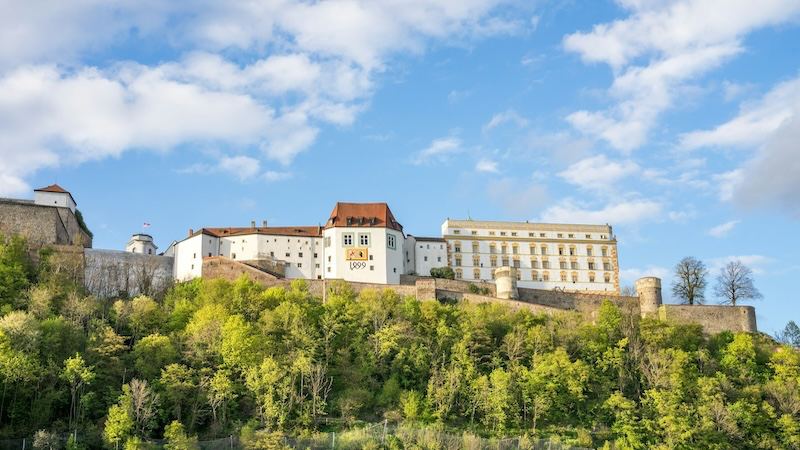
The Three Rivers: Danube, Inn, and Ilz
Passau’s unique location at the meeting point of three rivers is one of its most distinctive features. Each river has its own character and charm, contributing to the city’s picturesque scenery.
- The Danube: The Danube is Europe’s second-longest river, and it plays a central role in Passau’s identity. A walk along the Danube Promenade offers stunning views of the river and the surrounding hills. Boat tours are available for those who want to experience the river up close, with cruises ranging from short trips to multi-day excursions to Vienna and beyond.
- The Inn: The Inn River flows from the Alps and brings with it a distinct greenish hue, contrasting beautifully with the blue waters of the Danube. The Innstadt district, located on the southern bank of the Inn, is worth exploring for its charming streets and traditional Bavarian architecture.
- The Ilz: The Ilz River, often referred to as the “Black Pearl” due to its dark, clear waters, is the smallest of the three rivers but no less enchanting. The Ilzstadt district, nestled between the Ilz and the Danube, offers a tranquil escape with its lush greenery and serene atmosphere.
Outdoor Activities and Scenic Spots
Passau’s natural beauty and riverside location make it an ideal destination for outdoor enthusiasts. The city’s well-maintained parks and green spaces provide ample opportunities for relaxation and recreation.
- Innpromenade: This scenic walkway along the Inn River is perfect for a leisurely stroll or a bike ride. The promenade is lined with benches and offers stunning views of the river and the surrounding hills.
- Ilz River Walk: For a more tranquil experience, the Ilz River Walk takes you through lush forests and along the banks of the Ilz River. The walk is particularly beautiful in the fall, when the foliage turns vibrant shades of red and gold.
- Dreiflüsseeck: This is the point where the three rivers meet, and it’s a popular spot for visitors. The confluence offers a unique natural spectacle, with the different colors of the rivers blending together. There are several viewing platforms and benches where you can sit and take in the view.
Culinary Delights in Passau in Bavaria
No visit to Passau would be complete without sampling the local cuisine. Bavarian food is hearty and flavorful, and Passau’s restaurants and cafes offer a wide range of traditional dishes and modern interpretations.
- Bavarian Cuisine: Traditional Bavarian dishes such as Weißwurst (white sausage), Schweinshaxe (pork knuckle), and Bretzel (pretzel) are staples in Passau’s eateries. Pair these with a cold Weißbier (wheat beer) for a true Bavarian dining experience.
- Fish Dishes: Given its riverside location, Passau is also known for its freshwater fish dishes. Local specialties include Steckerlfisch (grilled fish on a stick) and Fischsuppe (fish soup), which are often served in riverside restaurants with stunning views of the water.
- Cafes and Bakeries: Passau’s charming cafes and bakeries are perfect for a relaxing break. Enjoy a slice of Kuchen (cake) or Torte (tart) with a cup of coffee while soaking in the city’s picturesque scenery. The Cafe Simonis particularly popular for its traditional pastries and cozy atmosphere.
Festivals and Events
Passau’s cultural calendar is filled with festivals and events that celebrate the city’s rich heritage and vibrant community. These events provide a great opportunity to experience the local culture and traditions.
- Passau Dult: This traditional Bavarian fair takes place twice a year, in spring and autumn. The fair features amusement rides, food stalls, and live music, making it a fun outing for families and visitors of all ages.
- Eulenspiegel Festival: Held annually in July, this festival celebrates the medieval jester Till Eulenspiegel with a series of performances, parades, and events. The festival brings the city’s history to life with its colorful costumes and lively atmosphere.
- Christmas Market: Passau’s Christmas Market is a magical experience, with its festive lights, decorated stalls, and the aroma of mulled wine and roasted chestnuts. The market is set against the backdrop of St. Stephen’s Cathedral, adding to its enchanting ambiance.
Day Trips from Passau
Passau’s central location makes it an ideal base for exploring the surrounding region. There are several attractive day trip options that allow you to experience the beauty and diversity of Lower Bavaria and beyond.
- Regensburg: Located about an hour’s drive from Passau, Regensburg is a UNESCO World Heritage Site known for its well-preserved medieval architecture. Highlights include the Regensburg Cathedral, the Stone Bridge, and the historic Old Town.
- Salzburg: Just across the border in Austria, Salzburg is famous for its baroque architecture and as the birthplace of Mozart. The city’s picturesque setting and rich cultural heritage make it a perfect day trip destination.
- Bavarian Forest National Park: For nature lovers, the Bavarian Forest National Park offers miles of hiking and biking trails through pristine forests and scenic landscapes. The park is home to a variety of wildlife, including lynx, deer, and eagles.
Practical Information for Visitors
When planning your trip to Passau, here are a few practical tips to keep in mind:
- Getting There: Passau is well-connected by train, with regular services from Munich, Vienna, and other major cities. The nearest airport is Munich International Airport, which is about two hours away by train.
- Accommodation: Passau offers a range of accommodation options to suit different budgets and preferences. From luxury hotels to charming guesthouses and budget-friendly hostels, there’s something for everyone. Booking in advance is recommended, especially during peak tourist seasons and major events.
- Getting Around: Passau’s Old Town is best explored on foot, as many of the streets are narrow and pedestrian-friendly. Public transportation, including buses and taxis, is available for longer distances and day trips.
- Weather: Passau experiences a temperate climate with warm summers and cold winters. Spring and autumn are ideal times to visit, with mild temperatures and fewer crowds. If you plan to visit during the winter, be prepared for cold weather and occasional snowfall.
Conclusion
Passau is a city that captivates visitors with its stunning natural setting, rich history, and vibrant cultural life. Whether you’re exploring its historic landmarks, enjoying the scenic beauty of its rivers, or indulging in its culinary delights, Passau offers a unique and unforgettable travel experience. As you wander through its charming streets and take in its breathtaking views, you’ll understand why Passau is truly the jewel of Bavaria.
